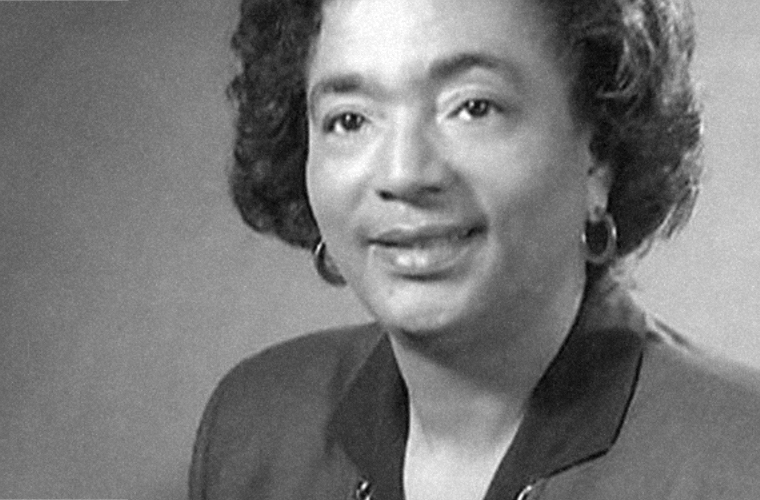In 1895 the National Medical Association was founded to advocate for African American physicians and their patients. In 1989 Dr. Yvonnecris Smith Veal became the first woman to chair the association’s Board of Trustees. In 1995, while senior medical director for the U.S. Postal Service New York metropolitan area, Dr. Veal was named the 95th president of the National Medical Association. Only the fourth woman to serve as its president, Dr. Veal became a spokesperson for more than 25,000 African American physicians.
Yvonnecris Smith was born in Ahoskie, North Carolina, in 1936. She earned her bachelor’s degree at Hampton Institute (now Hampton University) in 1957, graduating magna cum laude. In the early 1960s, when Dr. Veal attended medical school, only about half of the universities in the southern United States accepted African American students. She was the fifth African American student enrolled at the Medical College of Virginia in Richmond. Dr. Veal recalls that, at her graduation in 1962, “the black student graduates were invited only to their own separate baccalaureate and graduation exercises. That let me know that ‘the struggle certainly was not over.'” Such discrimination convinced Dr. Veal to join the National Medical Association immediately following her medical training. Retaining hospital privileges at Kings County Hospital Center in Brooklyn, New York, where she completed her internship, residency, and fellowship in pediatrics, Dr. Veal developed a private practice and at the same time became active in the local National Medical Association chapter.
In the 1970s, Dr. Veal expanded her pediatric work into a general practice and later took on a number of administrative roles. In 1975 she was named director of medical affairs at the East New York Neighborhood Family Care Center. Later she served as medical director of the Carter Community Health Center. In 1984 Dr. Veal began work as a contract physician with the U.S. Postal Service. Finding her niche in occupational medicine, she was soon promoted to field division medical officer.
Dr. Veal is responsible for the occupational health and safety of over 80,000 U.S. Postal Service employees in the New York area. Named senior medical director in 1993, Dr. Veal has noticed that the scope of her work has changed dramatically over the past twenty years. After the terrorist attacks of September 11, 2001, whole new levels of security and safety have been added to her responsibilities. “The Postal Service is really a small cosmos of the larger world. Now all of our society has this extremely heightened sense of awareness and must take precautions.” In October 2001, two of Dr. Veal’s facilities were closed due to threats and exposure to anthrax. “Hour by hour we were reevaluating and making changes in what should be done medically. And still today, we are running respiratory studies and continuously testing and checking employees.” In a tribute to her leadership Dr. Veal received the U.S. Postal Service National Medical Directors Award in 1997 and 2002.
A member of Delta Sigma Theta Sorority since 1955, Dr. Veal has remained an active member and was president of the Queens Alumnae Chapter from 1980 to 1984. She is also a member in the National Council of Negro Women, the American Medical Association, the American College of Occupational and Environmental Medicine, and the National Association for the Advancement of Colored People. In 1996 Dr. Veal received the Mary McLeod Bethune Award from the National Council of Negro Women.

